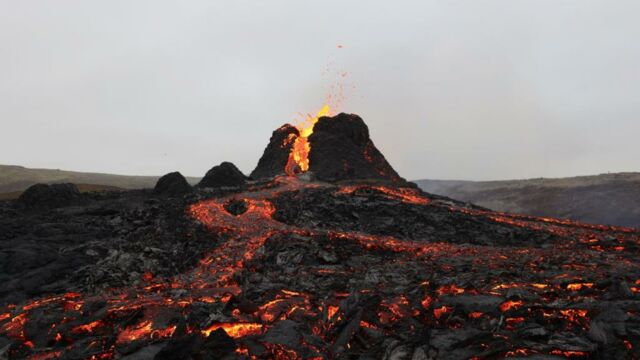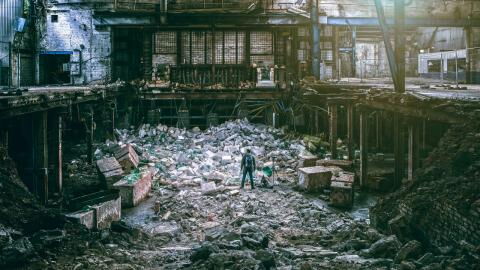Everyone shares a common fear of natural disasters. A team recently discovered a new fault line in Canada that they fear could cause a tsunami in the event of an earthquake, and this week multiple volcanoes have been hitting headlines. Eruptions were recorded in Italy, Japan, Mexico and Russia over the same period of time, and the Smithsonian Institution's Global Volcanism Program added three new eruptions to its most recent weekly catalogue of noteworthy activity. The list already contained 16 eruptions, so these additions bumped the total up to 19.
Discover our latest podcast
An eruption on the Reykjanes peninsula in Iceland, which started on Monday 19 December, is still ongoing. Locals say, ‘This is a different creature to anything we have seen.’ There are concerns that this volcano will cause travel disruption, as did the Eyjafjallajökull volcano in 2010.
Is there a global spike in volcanic activity?
While there are concerns about these simultaneous eruptions, especially amid rising worries about climate change, the Global Volcanism Program has stated that it has not seen ‘any evidence that volcanic activity is actually increasing’. However, this is not to say that the concern is baseless; there is simply a more logical explanation. Trends in volcanic activity are being ‘overshadowed by reporting factors such as historical events, technological changes, and exploration influences’.
So, we will see more reportage, but that doesn’t mean there are necessarily more eruptions. The program added:
The apparent increase in activity reflects increases in populations living near volcanoes to observe eruptions and improvements in communication technologies to report those eruptions.
Christopher Kilburn, professor of volcanology and geophysical hazards at University College London, confirms this viewpoint. He says it is not unusual for about a dozen volcanoes to be erupting over the same period:
However, there may be an unusual increase in the number of reports that circulate in the media, especially if a volcano is near a populated area or when dramatic video is available showing an eruption in progress.
Iceland’s Reykjanes volcano
As for the volcano in Iceland, scientists have now warned that the eruption could last for more than a week - they are still unsure about its duration. The Icelandic meteorological office has said the intensity of the eruption has stabilised, with President Guðni Thorlacius Johannesson advising:
We now wait to see what the forces of nature have in store.
According to the BBC, ‘it will not bring the same level of disruption as one in 2010, which halted European air travel’. Iceland's foreign minister, Bjarni Benediktsson, said on X:
There are no disruptions to flights to and from Iceland, and international flight corridors remain open.
Preparations, including the evacuation of 4,000 people, have help to minimise the damage from the eruption. Warnings have been issued to thrill-seekers who are trying to get close enough to get a good view of the incredible volcanic movement.
Read more:
⋙ Climate change could bring deadly diseases to the UK, experts warn
⋙ Scientists discover the coldest place in the Universe, here's how low the temperatures actually get
Sources used:
BBC: Iceland volcano erupts on Reykjanes peninsula
Newsweek: Fact Check: Is Volcanic Activity Spiking Around the World?
Mail Online: Iceland volcano LIVE: Lava shoots into the sky following weeks of earthquakes near Grindavik - as official warns 'this is a different creature to anything we've seen before'















